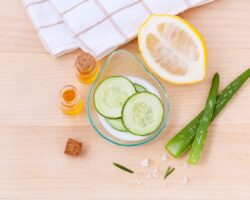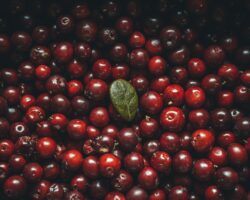It’s a list we should all include in our weekly menus.
Clogged arteries lead to peripheral vascular disease, strokes and heart attacks. And don’t think that only older people are affected: on the contrary, atherosclerosis (hardening of the arteries) can begin even in childhood. In addition to beta-blockers and cholesterol-lowering drugs, there are natural ways to clear the blood vessels. Monounsaturated, polyunsaturated and omega-3 fats, vitamins E, C, B6 and B12, potassium, magnesium and calcium help to keep the heart healthy. And it’s advisable to consume them every day – the good thing is that all the foods that contain them are tasty!
What to eat to cleanse your arteries:
- Avocado. The benefits of this tropical fruit have long been proven: Back in 1996, researchers from Mexico found that people who ate an avocado every day for one week reduced their cholesterol levels by almost 20%. As well as containing immune-boosting vitamins A, E and C, avocados are rich in potassium and magnesium, key elements in treating hypertension. New York nutritionist Megan Madden recommends making sandwiches with thin avocado slices instead of butter: much healthier for both your blood vessels and figure, and tastes more refined too. Our recommendation is an avocado, kiwi and apple smoothie.
- Nuts. Almonds are extremely high in monounsaturated fats, vitamin E and fibre, and walnuts are an excellent plant-based source of omega-3. According to the American Heart Association, monounsaturated fats can help lower harmful cholesterol. Take a handful of nuts with you and replace it with a snack of crackers in the afternoon.
- Salmon (or other oily fish). Fatty fish (mackerel, herring, tuna and salmon) are full of omega-3s, so eating them twice a week can reduce your risk of cardiovascular disease by reducing inflammation and triglyceride levels, and may also help raise HDL (high-density lipoproteins, which are considered good cholesterol) levels.
- Asparagus. Asparagus is rich in fibre and vitamins K, B1, B2, C and E, which helps lower blood pressure and prevent blood clots, which cause serious cardiovascular disease and lead to heart attacks.
- Broccoli. Broccoli is high in fibre, which not only helps to normalise blood pressure but also reduces stress.
- Curcuma. The main ingredient in turmeric, curcumin, is a strong anti-inflammatory. Studies have shown that high levels of curcumin reduce fatty deposits in arteries by 25%.
- Persimmon. Persimmon contains antioxidants and polyphenols that reduce LDL and triglyceride levels in the blood, which keeps arteries clear.
- Cinnamon. According to a recent study, even one teaspoon of cinnamon, rich in antioxidants, reduces blood fats, preventing plaque formation in the arteries and markedly reducing harmful cholesterol levels. All you need to do is sprinkle cinnamon over your morning latte.
- Cranberries. Studies show that potassium-rich cranberries can help lower LDL cholesterol and raise good HDL cholesterol levels in the body, and regular consumption reduces the overall risk of heart disease by almost 40%.
- Cheese. A recent Harvard Medical School study found that people who ate three servings of low-fat dairy products a day had lower systolic blood pressure than those who ate less.
- Watermelon is the perfect snack: not only dietary, but also heart protection. A study from Florida State University found that people who received a 4,000mg supplement of L-citrulline (an amino acid found in watermelon) were able to lower their blood pressure in just six weeks – the amino acid helps the body produce nitric oxide, which dilates blood vessels.
- Spinach. One serving of spinach can normalise levels of homocysteine, a known risk factor for atherosclerosis
- Whole grains. The soluble fibre found in whole grains, such as whole wheat bread, brown rice and oatmeal, binds cholesterol to food and removes it from the body.
- Beans. High in protein, fibre, iron and folic acid, they play a significant role in the prevention of stroke and heart attack.
What to drink and add to your food to cleanse your arteries
- Olive oil is rich in monounsaturated oleic acid, which has a positive effect on the oxidative process of the blood. One of the healthiest oils and an ideal dressing for salads and pasta. Don’t forget to use it sparingly as it is still caloric.
- Pomegranate contains phytochemicals that act as antioxidants to protect arterial mucosa from damage, which stimulates the body’s production of nitric oxide, which helps maintain blood flow and open arteries. We recommend drinking pomegranate juice: its advantage is the absence of seeds, which may negatively influence the gastrointestinal tract (however, in small quantities they are even useful: they strengthen bones and normalize the hormonal background).
- Orange juice prevents oxidative damage in the bloodstream thanks to antioxidants and vitamin C.
- Spirulina (algae). A daily dose of 4,500mg (usually in supplement or powder form) can help relax artery walls and normalise blood pressure, and also help the liver to balance blood fat levels.
- Coffee. People who drank more than two but no more than four cups of coffee a day for 13 years had a 20 percent lower risk of cardiovascular disease than people who drank more or less coffee or none at all, according to researchers from the Netherlands. Moderation here is key to heart health – caffeine is a stimulant that can cause a temporary rise in blood pressure, but in excess can lead to irregular heartbeats.
- Green tea. Green tea is rich in catechins – compounds that reduce cholesterol absorption in the body and also help you lose weight and are cancer prevention.






